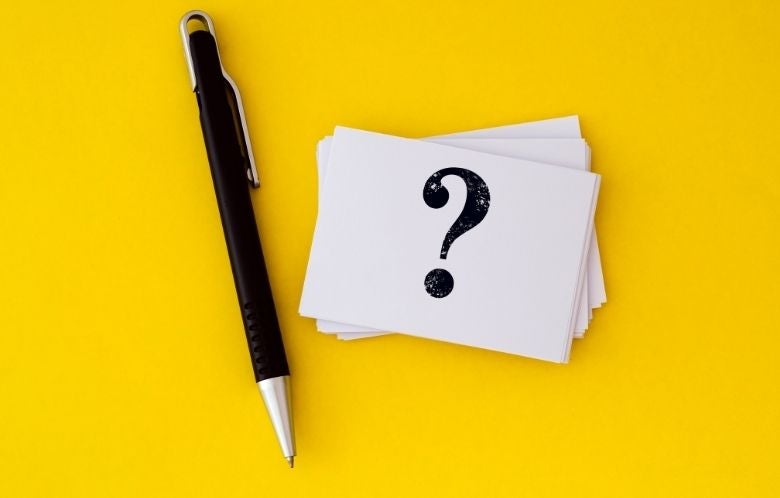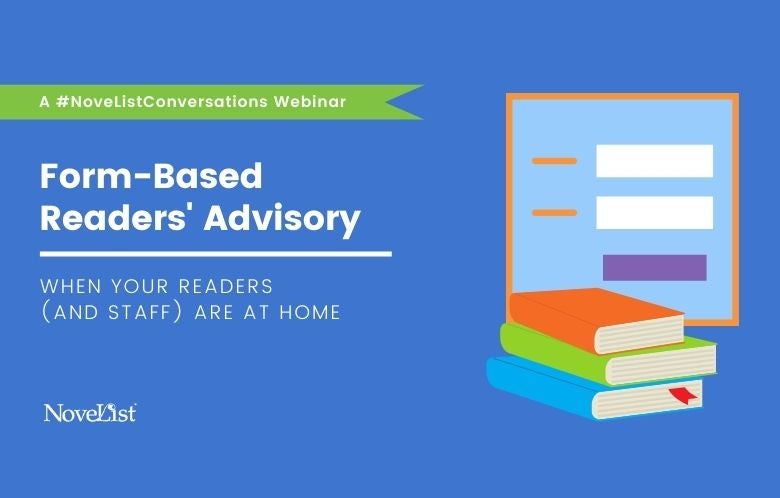Our recent State of Readers’ Advisory webinar pulled together public librarians from across the country to discuss how the pandemic has impacted their readers’ advisory services (you can watch it here). Everyone had so many wonderful insights to share about their experiences that we ran out of time to answer the questions posed by attendees. Below are some of the questions that came in during the webinar and answers from our panelists.
What methods are you finding for sharing offerings with library users since they often are not visiting the library as frequently?
Getting content on your website is always a great opportunity to reach readers. Book carousels online serve as digital displays. Williamsburg Regional Library (WRL) has been using linked data to create carousels of appropriate items for our calendar events on the website. Some examples are:
- Chess Open Play
- Day of Drones
- How Scientists Are Saving Birds From Window Collisions
- 9/11 Anniversary Webinar
You may also consider working with some partners in your community to share linked data carousels on their websites. Here are some examples:
Also, think about RA services in your catalog. Can you improve catalog records to better connect users with books they are interested in?
You can use the MARC 856 field (for URLs) to link to RA content like reading lists, book discussion guides, etc. Make sure that your series information is in the catalog record in the MARC 800 and 830 fields and maybe look at third-party catalog enrichment tools like NoveList Select.
How can RA services be more effectively promoted in order to increase patron engagement? We post on social media and include info in our monthly newsletter, but we still don't have patrons using our services as much as we would like.
This is a perpetual question! Here are a couple of thoughts:
Is there signage in your building indicating that users can ask about books and reading? Lots of folks may not know you are willing and able to talk about these topics with them.
Are staff trying to move questions from basic things like placing holds to RA encounters? When you place a hold for someone you can ask if you can help them find something to take with them right now, initiating an RA interaction. A less daunting option here would be to create bookmark-type read-alike lists for titles in the collection that have high holds and keep them at the desk to give to readers when you place a hold for that author’s hot book. This gives them something to possibly get right away, and it also reinforces the library as a place to get reading ideas, even if they don’t ask right then.
Do you do roving RA (like we used to talk about roving reference)? Going out in the stacks and asking browsers if you can help them find something (the “are you being served” approach). A lot of the time they will say that they do not need any assistance, but they will also remember that you offered and that this is a service that the library offers.
It’s important to think of RA as a continuum of services from the in-person encounter to all the asynchronous options and use all of them. Meet the readers where they are — in the catalog, on your website and social media, and in the stacks.
I know that we're talking RA, however, I'm curious how long folks' Role Playing Game (RPG) programs (sessions) are because my personal weekly group plays for 3 hours minimum and we barely get anything accomplished! How long are your RPG library programs?
Depends on the type of RPG program you are running! For D&D, aim for 2-3 hours per session. It’s easier to manage the time of a session if you’re doing a one-shot (a D&D storyline that can be played in one go) as most of these will tell you how much time it takes to complete the story. The D&D book Candlekeep Mysteries is an excellent resource for these types of one-shots. For campaigns (a D&D game with an overarching story where the same characters return) it’s okay to stop at time and call it a night. Just make sure to end on a cliffhanger! For shorter gaming systems, check out games that use the Powered by the Apocalypse (PBTA) system like Monster of the Week, Urban Shadows, or Blades in the Dark. These aren’t as popular as D&D is but are really fun and easy games for new players and Game Masters, and can be played in a shorter amount of time. It’s also important to note that there are always going to be some games where you don’t get much done. It’s the nature of D&D.
What is the best way to navigate RA with small libraries/libraries that are in the process of expanding?
Helping people find the stories that validate and sustain them should be central to library work, and RA is how we build that community of readers. It is important to make sure RA is considered a key service for users and not just something we do for fun or when we have time. With that understanding, you have to then figure out how to best use your time and resources (fiscal, space, etc.) to support and build that community of readers. Things like book displays and reading lists for best-selling titles can be a good way to start off. Most RA services, whether in-person or asynchronous, are scalable, so see what other libraries are doing in terms of RA service and scale that to what you can support. Look at the literature; there are some great articles on RA services in back issues of Library Journal, Booklist, Public Libraries Magazine, Reference and User Services Quarterly (RUSQ), and in the NoveList database.
Can anyone share a form-based RA that was developed during COVID that works well for their patrons/community?
At WRL, the Quick Picks form was developed during the pandemic. It is a much-shortened version of the long-running personalized reading suggestion form. The Quick Picks is pretty much exclusively used by parents looking for books for young readers. The shorter form sometimes only gives enough information about reading interests to provide some very basic choices, but it seems to work pretty well for younger children, who might be more subject-focused (e.g. books about dinosaurs). The longer form is still a better option for a more satisfying RA experience. 😊
Thank you to our panelists for taking the time to answer our follow-up questions and to everyone who participated in the State of Readers' Advisory webinar. How were the RA services at your library impacted by the pandemic? Let us know!



